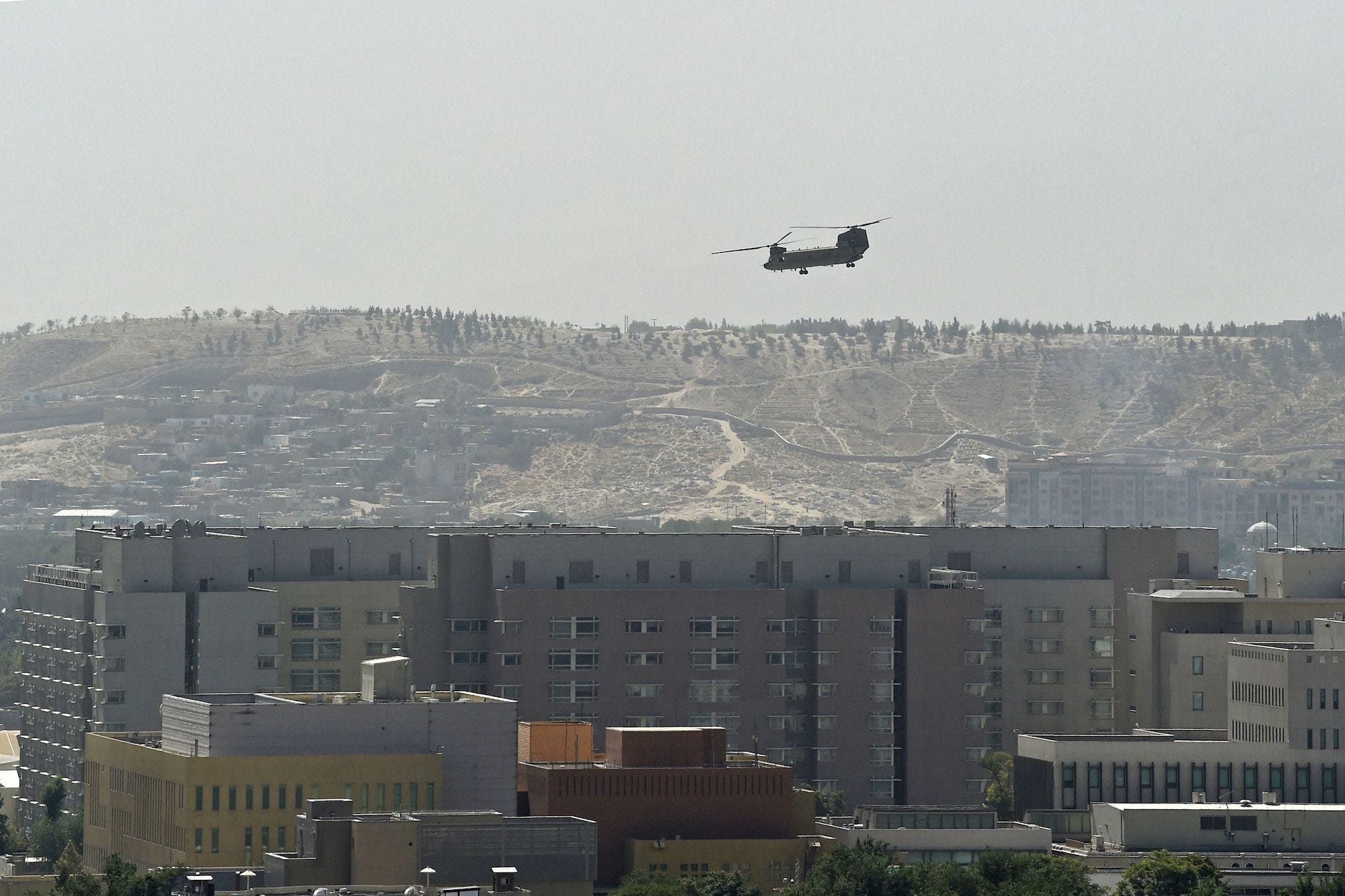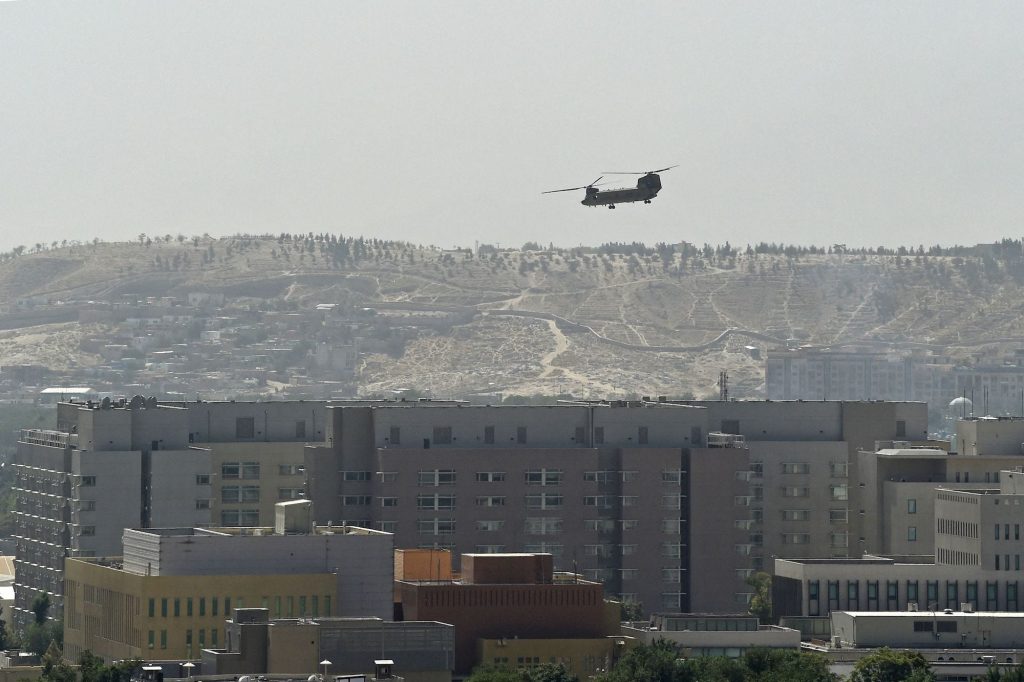
WAKIL KOHSAR/AFP via Getty
- Biden is planning to evacuate diplomatic staff in Afghanistan by Aug. 31, per The Washington Post.
- Without any plans set in place, the US diplomatic presence in Kabul will go dark for some time.
- Secretary of State Antony Blinken tamped down the likelihood of an on-the-ground presence in Kabul.
- See more stories on Insider's business page.
President Joe Biden is planning to evacuate all diplomatic staff in Afghanistan by the Aug. 31 troop withdrawal deadline with no concrete plans on whether or not they will return to the country, according to The Washington Post.
The Taliban has signaled some interest in the US keeping a diplomatic outpost in Kabul, but the Biden administration has not yet concluded on what their potential presence in the country might resemble.
State Department spokesman Ned Price on Friday said that the Biden administration is "actively discussing" the Taliban's request with allies. But he said that the US has not spoken with the Taliban about a vision for a future US diplomatic presence, according to a US official who spoke to The Washington Post.
Without any plans set in place, it is all but assured that the US diplomatic presence in Kabul will go dark for some time, which would make it more difficult for the Biden administration as they have sought to continue aiding Americans and Afghans who hope to leave the country after Aug. 31. The withdrawal comes two decades after US-led troops ousted the Taliban in the "War on Terror." The group made a lightning-quick advance to regain control of the country this month.
In crafting plans for a potential diplomatic presence in Afghanistan, the Biden administration must also determine whether they will formally acknowledge a Taliban government, according to The Post report.
When asked how the US can help individuals who will remain in Afghanistan after Aug. 31, the US said it was working on the logistics.
"We're developing detailed plans for how we can continue to provide consular support and facilitate departures for those who wish to leave after August 31," a senior State Department official said.
Secretary of State Antony Blinken during a Sunday appearance on "Meet the Press" was not optimistic about a future on-the-ground diplomatic presence in the country, saying "that's not likely to happen."
"What is going to happen is that our commitment to continue to help people leave Afghanistan who want to leave and who are not out by September 1st, that endures," he said. "There's no deadline on that effort. And we have ways, we have mechanisms to help facilitate the ongoing departure of people from Afghanistan if they choose to leave."
There are roughly 350 Americans remaining in Afghanistan who want to leave the country, a State Department spokesperson told The Post. Several of the individuals may have already found a way to leave Kabul, the spokesperson added.
The State Department also conversed with 280 additional individuals who claimed to be American citizens in Afghanistan but had either not yet relayed their plans or informed officials that they wanted to stay in the country.
US passport holders who want to depart Kabul can get into the airport, despite the rush in evacuations before the looming withdrawal date, Pentagon spokesman John Kirby said on Saturday.
Army Maj. Gen. William D. "Hank" Taylor reported that in a 24-hour period between Friday and Saturday, 6,800 individuals were flown out of Kabul - with 4,000 of the evacuees on US military planes.
Roughly 117,000 individuals have been flown out of Afghanistan since the evacuation undertaking began on Aug. 14, Taylor said.
As Afghanistan prepares for a full US troop withdrawal, many residents of fearful of the impending Taliban rule.
A terrorist attack at the Kabul airport that killed at least 169 Afghans and 13 US service members last week only served to magnify the level of danger that has permeated much of Kabul. The suicide bombing was carried out by ISIS-K, the regional affiliate of the Islamic State group, which claimed responsibility for the attack.
The US on Friday retaliated to the airport attack with a drone strike that killed two high-profile Islamic State militants, according to the Pentagon.
Biden on Saturday reiterated that "this strike was not the last" and warned that another terrorist attack at the Kabul airport is "highly likely in the next 24 to 36 hours."
